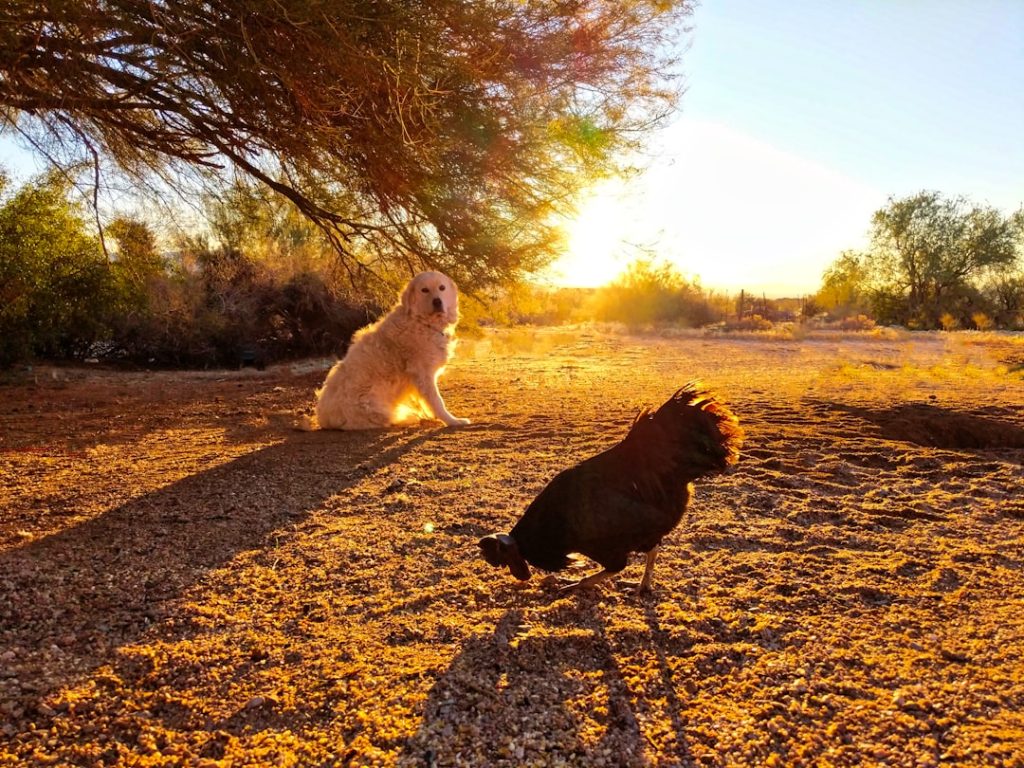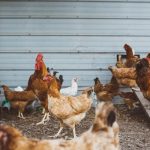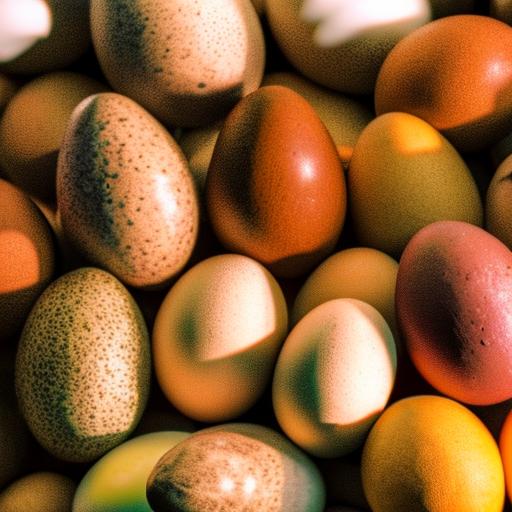Protecting chickens from predators is a significant concern for poultry farmers. While various methods exist to safeguard flocks, utilizing a well-trained dog can be an effective deterrent against potential threats. However, not all dog breeds are equally suited for this task.
Certain breeds possess natural instincts that make them more adept at protecting and guarding livestock, including chickens. This article will examine the concept of optimal dog breeds for chicken protection, identifying key characteristics to consider when selecting a breed for this purpose. The importance of proper training and socialization will be emphasized, along with practical tips for introducing a new dog to a chicken flock.
Additionally, the discussion will cover common pitfalls to avoid when choosing a dog breed for chicken protection. By exploring these topics, poultry farmers and chicken owners can make informed decisions about incorporating a guardian dog into their flock management strategy, ultimately enhancing the safety and well-being of their chickens.
Table of Contents
- 1 Characteristics to look for in a dog breed for chicken protection
- 2 Top dog breeds for protecting chickens
- 3 The importance of training and socialization for a dog to protect chickens
- 4 Tips for introducing a new dog to a flock of chickens
- 5 Common mistakes to avoid when selecting a dog breed for chickens
- 6 Conclusion and final thoughts on the best dog breeds for chickens
- 7 FAQs
Key Takeaways
- Introducing the concept of using specific dog breeds to protect chickens from predators
- Characteristics such as loyalty, intelligence, and low prey drive are important when selecting a dog breed for chicken protection
- Top dog breeds for protecting chickens include Great Pyrenees, Anatolian Shepherd, and Maremma Sheepdog
- Training and socialization are crucial for a dog to effectively protect chickens without harming them
- When introducing a new dog to a flock of chickens, it’s important to supervise and gradually acclimate the dog to the birds
- Common mistakes to avoid when selecting a dog breed for chickens include choosing breeds with high prey drive and not providing proper training and socialization
- In conclusion, selecting the right dog breed and providing proper training are essential for effectively protecting chickens from predators
Characteristics to look for in a dog breed for chicken protection
Protective Instincts and Prey Drive
The ideal breed should have a strong prey drive and natural protective instincts, making it alert, vigilant, and motivated to defend its territory and the animals within it.
Intelligence, Trainability, and Responsiveness
The breed should be intelligent, easily trainable, and responsive to commands. This enables the dog to learn to coexist with chickens and understand its role in protecting them.
Gentleness, Calmness, and Size Considerations
The breed should have a gentle and calm demeanor around smaller animals, allowing it to differentiate between potential threats and the chickens themselves. Additionally, the size of the breed is crucial, as larger dogs may unintentionally harm the chickens while trying to protect them.
The perfect dog breed for protecting chickens should possess a combination of protective instincts, trainability, gentleness, and the ability to coexist peacefully with smaller animals.
Top dog breeds for protecting chickens

Several dog breeds are well-known for their ability to protect and guard livestock, including chickens. One of the most popular breeds for this purpose is the Great Pyrenees. This large and majestic breed has a long history of guarding livestock and is known for its calm and gentle nature around smaller animals.
The Maremma Sheepdog is another excellent choice for protecting chickens, as it is a natural guardian with a strong protective instinct. The Anatolian Shepherd is also highly regarded for its ability to protect livestock, including poultry. This breed is independent, intelligent, and fiercely loyal to its flock.
Additionally, the Akbash is a breed that excels at protecting chickens due to its alertness, intelligence, and protective nature. The Polish Tatra Sheepdog, also known as the Tatra Mountain Sheepdog, is another breed that is well-suited for guarding chickens. This breed is known for its fearlessness and unwavering dedication to protecting its flock.
Overall, these breeds are among the top choices for protecting chickens due to their natural instincts, trainability, and gentle demeanor around smaller animals.
While natural instincts play a significant role in a dog’s ability to protect chickens, training and socialization are equally important factors. Proper training can help channel a dog’s protective instincts in a positive and controlled manner, while socialization can ensure that the dog is comfortable and well-behaved around other animals, including chickens. Training should begin at an early age and focus on obedience, impulse control, and desensitization to potential distractions or triggers.
Positive reinforcement methods, such as rewards and praise, can be highly effective in shaping the desired behavior in a dog. Socialization should also start early and involve exposing the dog to various environments, people, animals, and experiences. This will help the dog develop confidence, adaptability, and good manners around different stimuli.
Additionally, introducing the dog to the chickens in a controlled and supervised manner can help build a positive association between the two, leading to a harmonious relationship based on mutual respect and understanding. Furthermore, ongoing training and socialization are essential to maintain the dog’s protective abilities and ensure that it continues to coexist peacefully with the chickens. Consistent reinforcement of commands and behaviors will help solidify the dog’s role as a guardian while preventing any potential issues or conflicts with the flock.
Regular exposure to the chickens will also help reinforce the bond between the dog and the poultry, further strengthening their relationship and the dog’s commitment to protecting them. Overall, training and socialization are crucial components in developing a well-rounded and reliable guardian for chickens.
Tips for introducing a new dog to a flock of chickens
Introducing a new dog to a flock of chickens requires careful planning and supervision to ensure a smooth transition for both the dog and the poultry. One important tip is to start by allowing the dog to observe the chickens from a distance while on a leash. This will help the dog become familiar with the sight, sound, and smell of the chickens without causing any stress or anxiety for either party.
Gradually increasing the proximity between the dog and the chickens while monitoring their interactions will help gauge the dog’s behavior and response to the poultry. Another tip is to establish clear boundaries and rules for the dog’s interactions with the chickens. This can include teaching the dog to respect the chickens’ space, not to chase or harass them, and to respond to commands such as “leave it” or “stay.” Consistent reinforcement of these rules through training and positive reinforcement will help shape the desired behavior in the dog.
Additionally, providing plenty of positive experiences and rewards for the dog in the presence of the chickens can help create a positive association between the two. This can include offering treats or praise when the dog remains calm and composed around the poultry. Over time, this will help build trust and familiarity between the dog and the chickens.
Lastly, it is important to supervise all interactions between the dog and the chickens until trust has been established and both parties are comfortable with each other’s presence. This will help prevent any potential conflicts or accidents while allowing for intervention if necessary.
Common mistakes to avoid when selecting a dog breed for chickens

Looking Beyond Size and Appearance
One common mistake is choosing a breed based solely on size or appearance, without considering its natural instincts or suitability for guarding livestock. While larger breeds may seem more intimidating, they may not necessarily possess the right temperament or instincts for protecting smaller animals like chickens.
Another mistake is underestimating the importance of training and socialization in shaping a dog’s behavior around poultry. Regardless of breed or natural instincts, all dogs require proper training and socialization to coexist peacefully with chickens and fulfill their role as protectors.
Assessing Individual Traits and Ongoing Supervision
Overlooking the individual personality and temperament of a dog can be a critical mistake. Each dog is unique, and factors such as its past experiences, environment, and upbringing can influence its behavior around livestock. It is important to assess each dog’s suitability based on its specific traits rather than relying solely on general breed characteristics. Furthermore, neglecting ongoing supervision and reinforcement of desired behaviors can lead to complacency and potential issues down the line. Even well-trained dogs require consistent guidance and support to maintain their role as protectors of chickens.
Conclusion and final thoughts on the best dog breeds for chickens
In conclusion, selecting the best dog breed for protecting chickens involves considering key characteristics such as natural instincts, trainability, gentleness around smaller animals, and size. Breeds such as Great Pyrenees, Maremma Sheepdog, Anatolian Shepherd, Akbash, and Polish Tatra Sheepdog are among the top choices due to their suitability for guarding livestock. However, regardless of breed, proper training and socialization are essential in shaping a dog’s behavior around poultry and maintaining its role as a reliable protector.
Introducing a new dog to a flock of chickens requires patience, supervision, clear boundaries, positive reinforcement, and ongoing monitoring to ensure a harmonious relationship between the two parties. Additionally, common mistakes such as overlooking training and socialization or underestimating individual temperament should be avoided when selecting a dog breed for chickens. Ultimately, with careful consideration of breed characteristics, proper training and socialization, as well as attentive supervision during introductions, dogs can become valuable guardians for protecting chickens from potential threats.
By understanding these key factors and taking proactive measures, poultry farmers can establish a successful partnership between their dogs and their cherished flock of chickens.
If you’re considering getting chickens and want to ensure they have a furry companion, you may want to check out this article on the best dog breeds for chickens. It provides valuable information on which dog breeds are most compatible with chickens and can help keep them safe. Check it out here for some helpful tips on choosing the right dog for your feathered friends.
FAQs
What are the best dog breeds for chickens?
Some of the best dog breeds for chickens include the Great Pyrenees, Maremma Sheepdog, Anatolian Shepherd, and Border Collie. These breeds are known for their protective instincts and ability to coexist with livestock.
What traits should I look for in a dog breed for chickens?
When choosing a dog breed for chickens, it’s important to look for breeds that have a strong protective instinct, are good with other animals, and have a calm and gentle demeanor. These traits will help ensure that the dog can effectively guard and protect the chickens without posing a threat to them.
How can a dog help protect chickens?
A well-trained and properly socialized dog can help protect chickens by deterring predators, such as foxes, raccoons, and birds of prey, from approaching the coop or free-range area. The dog’s presence alone can act as a deterrent, and their barking and alertness can help scare off potential threats.
Are there any dog breeds that are not suitable for chickens?
Some dog breeds, such as terriers and hunting breeds, may not be suitable for chickens as they have a strong prey drive and may pose a threat to the birds. It’s important to carefully consider a dog’s temperament and instincts before introducing them to a chicken flock.
How should I introduce a dog to my chickens?
When introducing a dog to chickens, it’s important to do so gradually and under controlled circumstances. Start by allowing the dog to observe the chickens from a distance and gradually increase their exposure while closely supervising their interactions. Positive reinforcement and training can also help the dog learn to coexist peacefully with the chickens.
Meet Walter, the feathered-friend fanatic of Florida! Nestled in the sunshine state, Walter struts through life with his feathered companions, clucking his way to happiness. With a coop that’s fancier than a five-star hotel, he’s the Don Juan of the chicken world. When he’s not teaching his hens to do the cha-cha, you’ll find him in a heated debate with his prized rooster, Sir Clucks-a-Lot. Walter’s poultry passion is no yolk; he’s the sunny-side-up guy you never knew you needed in your flock of friends!







